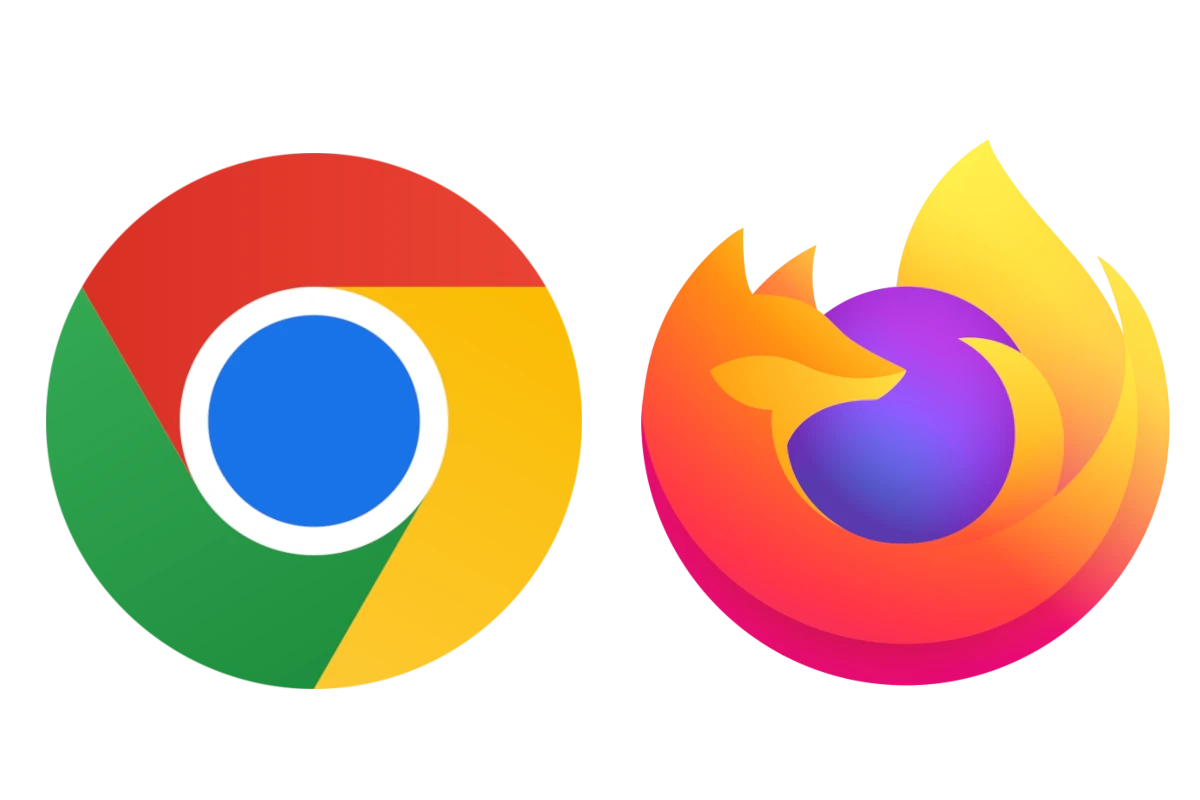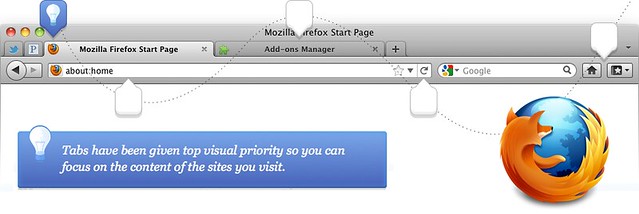Having entered the browser wars during a period of utter stagnancy, Firefox’s success can be largely attributed to its pristine timing. In the years preceding its existence, a heated competition for browser usage share had taken place. Following a cutthroat battle that ended with the demise of Netscape Navigator, Internet Explorer emerged victorious in the first wave of browser wars. With little threat to its dominance, Internet Explorer would rest comfortably in the lead for years to come.
As a result, innovation in the web browser space came to a grinding halt. Aware of the market’s vulnerability, Mozilla aggressively penetrated, publicly releasing Firefox 1.0 on November 9th, 2004. The launch would kick off the second wave of browser wars, igniting a battle that would forever change the way that we surf the web.
Fast forward to the present. Firefox has left itself susceptible to the same vulnerabilities that it once capitalized on. Utilizing technology that is ill-equipped for the future, the browser has been plagued with performance issues in recent history. Will Firefox withstand the test of time? If its present form is any indication of what’s to come, the future looks grim at best.
Firefox Amongst The Competition
According to statistics provided by Net Applications, Firefox’s usage share now sits at 24.34 percent, down from 24.46 percent in the fourth quarter of 2009. Over the same period of time, Safari, Opera, and Chrome all saw an increase in usage share. Given its current state, without question, the biggest threat to the future of Firefox is its competition.
In terms of usage, Internet Explorer currently leads the pack, holding a resounding 61.89 percent share in the first quarter of 2010. While Internet Explorer controls the browser market, it is hardly in control of it. Losing nearly 30 percent of its usage share since 2004, Internet Explorer has become more of an obstacle than a true competitor.
Safari, Apple’s signature web browser, now accounts for 4.49 percent of the browser usage share. Showing a slight increase from the previous quarter, this marks the browser’s highest share since 2007. Meanwhile, Opera weighs in with a 2.37 percent share. Up from 2.29 percent in the fourth quarter of 2009, this is Opera’s best representation to date. With that being said, neither Safari nor Opera pose a serious threat to Firefox’s future. Historically, both browsers have fluctuated in usage share, but have never pulled ahead of the pack. Having yet to do so, chances are slim that either browser ever will.
Chrome is the only web browser that has experienced substantial growth in the past year, claiming a respective 5.40 percent usage share. Up from 4.04 percent in the previous quarter, Chrome has seen the largest increase in share amongst all of the browsers. Surpassing both Safari and Opera in usage share within its first year on the market, Chrome presents the biggest threat to Firefox’s future.
With Internet Explorer’s usage share rapidly decaying, it’s obvious that users are actively seeking other options. Prior to Chrome, the obvious choice was Firefox. Now, the choice isn’t all that obvious. The recent struggle for usage share between Firefox and Chrome has set the stage for the third wave of browser wars.
From A Technical Standpoint
After establishing the fact that Chrome will have a major impact on Firefox’s future, it only makes sense to assess why Chrome is rapidly gaining usage share, while Firefox is actively losing it. Comparing the foundations on which each of the browsers are built, the mystery begins to unravel, and Firefox’s grim fate becomes more apparent.
Earlier I stated that Firefox is ill-equipped for the future; allow me to elaborate. Every web browser is built on a layout engine which translates a web page’s code and displays it in the manner that you and I are accustomed to. In order to achieve this, Firefox uses the Gecko engine, whereas Chrome uses WebKit. In regards to the browsers’ future viability, one of the most notable differences between the engines is their level of HTML5 support.
Cleaning up previous versions of HTML, and introducing a number of new elements and attributes, HTML5 is the latest revision of HyperText Markup Language. As HTML5 has become more practical, websites have begun implementing features specific to it. Firefox’s Gecko 1.9.2 engine offers partial support for HTML5, but only delivers a fraction of the support that Chrome’s WebKit 532 engine does. With the number of websites using HTML5 increasing by the day, Firefox finds itself dated and unprepared for changes to come.
The Browser Of Choice
Technical deficiencies are one thing; how they affect you is another. Firefox’s limited HTML5 support will affect you in the future, but it’s also affecting you as we speak. Both YouTube and Vimeo have begun beta testing new HTML5 features, including the ability to stream videos without the need for third party plug-ins. These websites have invited users with browsers capable of handling such features to participate in testing. Firefox is not among the browsers currently capable of doing so.
You may not be an avid user of YouTube or Vimeo, but chances are, you use Google applications. Coming prepackaged with Google Gears, Chrome adds features that enhance popular applications such as Gmail, Google Docs, and Google Reader. Gears, however, is no longer being developed. Why? Google is now using HTML5 to make these enhancements possible, with new applications such as Wave being built around HTML5. It should go without saying that Chrome will allow you to take full advantage of these changes.
With the addition of extensions, Firefox finds itself with no distinct advantage over Chrome. Simply put, Chrome offers everything that Firefox does and more, all while excelling in performance. While Firefox has been haunted with speed and stability issues throughout the past year, Chrome has had no such problems. In fact, benchmark tests show that Chrome 4.0 operates at nearly twice the speed of Firefox 3.6. Lacking any notable shortcomings, with an obvious edge in performance, Chrome is clearly the browser of choice.
Future Updates Hold Little Promise
With Chrome now setting the standard for web browsers, Firefox must react in order to secure its future. Forced into a position requiring them to play catch up, surely Mozilla has big things planned for the future, right? In short, not really.
The first update that we’ll see to the browser comes in the form of Firefox 3.7. Now in alpha testing, version 3.7 is set to make its public debut before the end of the second quarter of 2010. Updates will include the ability to synchronize bookmarks and run websites as applications. Additionally, in order to increase performance, Firefox will begin to process separate browsing tabs individually. While these may seem like valiant upgrades, consider this: Chrome already synchronizes bookmarks, runs websites as applications, and processes separate browser tabs individually.
If Mozilla isn’t introducing anything revolutionary in Firefox 3.7, then certainly they have something big planned for the next major release, right? Again, not really. Scheduled to be released towards the end of 2010, Firefox 4.0 promises a massive overhaul of its current interface. This sounds good on paper, but in reality, the renovated interface is an imitation of Chrome’s. In a market where innovation is key, reworking a browser’s interface to mimic its competition is a good sign of a murky future.
Another big change we’ll see in version 4.0 is the introduction of Jetpack, an upgraded framework for Firefox add-ons . With Jetpack, users will no longer have to restart the browser upon installing, uninstalling, enabling, or disabling add-ons.
Additionally, Jetpack will allow developers to create add-ons without excessive knowledge of Mozilla-specific code. Chrome, however, already caters to developers in this manner, and allows users to add, remove, and toggle extensions on the fly (no restarts required). In essence, the updates that Mozilla has planned will only serve to bring Firefox up to speed with Chrome.
A Grim Future Indeed
Google holds another important advantage over Firefox. Mozilla’s main source of revenue for the Firefox browser is, in fact, Google. That’s right, Google. While a major competitor, Google also pays Firefox to be the default search engine of the browser. Conflict of interests? You betcha! As Chrome increases in popularity, it would only be logical for Google to stop funding Firefox. Doing so would leave Chrome with a sizeable advantage, and gradually work towards increasing their usage share by slowing Firefox’s progress.
Considering the browser’s inefficiency and Mozilla’s lack of foresight, there’s little hope for Firefox’s future. Really, there is no obvious reason as to why the average internet user would choose Firefox over Chrome; Firefox’s recent decline in usage share is a direct reflection of this. In spite of these concerns, Mozilla has done little more than make plans to implement features that Chrome already embodies. Google’s financial leverage over Firefox is the last nail in the coffin, sealing the browser’s grim fate.






GIPHY App Key not set. Please check settings
9 Comments